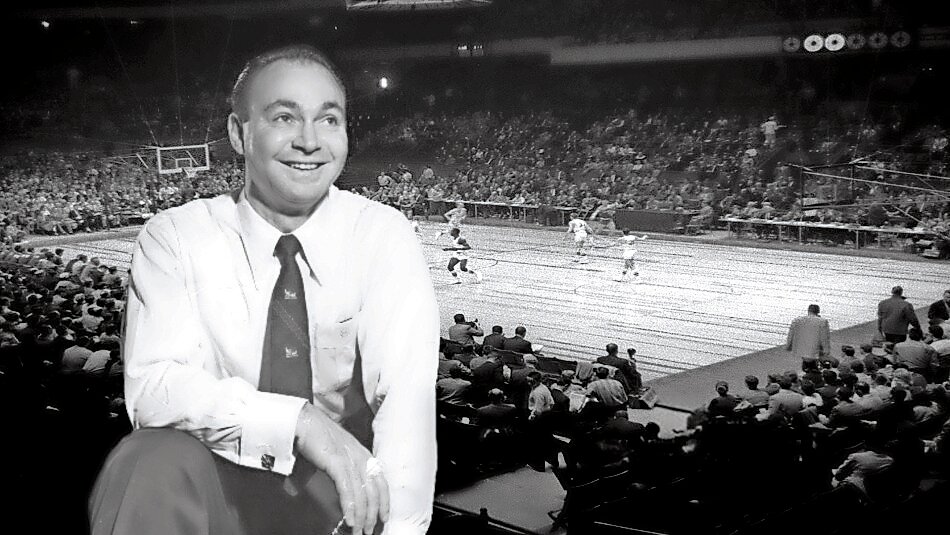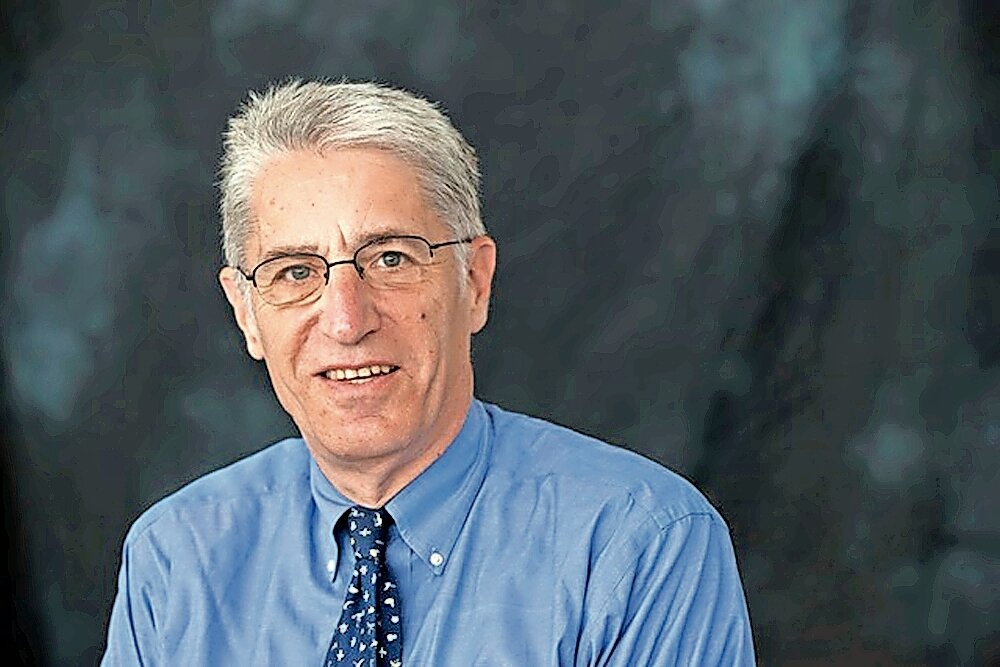Jeffrey Gurock introduces Marty Glickman saga to home synagogue
Hebrew Institute of Riverdale gets preview of book on broadcaster
One accomplished Jewish author took center stage at Hebrew Institute of Riverdale recently to speak about an accomplished Jewish sports broadcaster on Sept. 30.
Jeffrey Gurock, who is the Libby M. Klaperman professor of Jewish History at Yeshiva University and has written or helped edit 25 books which expound on Jewish American culture, had the honor of speaking about the late sports broadcaster Marty Glickman.
Gurock spent 45 minutes talking about his latest book, “Marty Glickman: The Life of an American Jewish Sports Legend,” which portrays the broadcaster’s lasting and the battle he faced in American culture amidst deep-rooted anti-semitism throughout the 20th century.
A couple questions followed after that and Gurock then left to a resounding ovation from his fellow congregants.
”This is my family and these are my friends,” said the 73-year-old Gurock. “To have them appreciate what I do is very warming.”
Gurock received acclaim for writing “Jews in Gotham,” a 2012 novel which garnered the Everett Family Foundation Award for Jewish Book of the Year.
“Marty Glickman” is Gurock’s third book with a sports theme and provides a time capsule into Glickman’s journey from a Bronx kid to a football and track star at Syracuse University, to getting marginalized from the 1936 Olympics in Berlin, and then a career of more than 50 years commentating New York sporting events.
“Each one of them is a metaphor of using sports to understand where minority groups are and where Jewish groups are,” Gurock says of his sports tales. “Marty Glickman seemed like a perfect story.”
In chapter five “Sidelined in Berlin,” Gurock emphasizes the tension surrounding the 1936 Olympics in Berlin. A day before the race, Glickman and teammate Sam Stoller were the two Jewish runners booted from the 4x100 meter American relay team as a form of appeasement to Nazi leader Adolf Hitler.
“Many Jewish people and non-Jewish people forgot what happened in 1936 and how he was marginalized,” Gurock said.
Gurock talked about the decision of yanking Glickman and Stoller a day before they were set to race, and how Jesse Owens and Ralph Metcalfe, both Black men, were assigned to replace them. Gurock explained how Owens protested the discrimination against his Jewish teammates, but Olympic committee president Avery Brundage and the coaches still insisted on their exclusion.
“He realizes his Jewishness when he’s turned away,” Gurock said of Glickman.
Glickman was born in the Bronx to Romanian immigrant parents. Very little about his childhood was distracted by antisemitism, according to Gurock. And Glickman stayed busy by excelling in football and track at James Madison High School in Brooklyn.
“They were located in comfortable cocoons of their own ethnicity where everywhere they turned they bumped into their own kind,” Gurock writes in the introduction of the book.
Glickman encountered antisemistism at Syracuse, but he received better treatment than his other Jewish peers due to his athletic prowess, according to Gurock. Glickman didn’t pay much attention to the anti-Jewish rhetoric either as he pursued his Olympic dreams.
“For the longest time in his life he skated away from antisemitism,” Gurock said of the man character’s coming of age. “This period piece of the 1930s is about people keeping their heads down and trying to make it.”
In chapter six “New York’s Broadcaster,” Gurock portrays how a young broadcaster took a break to enlist in the Marines before rising to success in broadcasting and endearing himself to the audience with his “descriptive words.”
Among his favorite basketball catch phrases were “top of the key” and “swish,” which were synonymous with his radio broadcasts. He had a knack for jazzing up the broadcast further by using yiddish terms like “chutzpah” or “kvetch.” Glickman later became the first broadcaster for NBA games on television.
He was a voice for the Giants, Jets, Knicks, Yankees, and Brooklyn Dodgers at certain points of his career. While many admired him, there were detractors who were critical of his New York accent mixed with a Jewish identity.
Back then, change was encouraged of Jews in America, but Glickman, who was not particularly religious, never gave in to the exhortations. Gurock appreciated that fact, and had an interesting parallel for it.
“I used Kirk Douglas who later in his life felt bad for changing his name,” Gurock said of the actor born Issur Danielovitch. “He says he gave up his identity in order to make it in America.”
Gurock and his wife, Pamela, have three children and have lived in Riverdale for 48 years. When he’s not writing books or teaching, Gurock enjoys running two miles every day and has 12 marathons under his belt.
Like Glickman, Gurock is Jewish and from New York. The opportunity to promote his new book at his home synagogue felt like a “home game.”
“We call our synagogue ‘bayit’ which means home in Hebrew,” Gurock said. “So I am home.”
“Marty Glickman” is available for purchase online.









